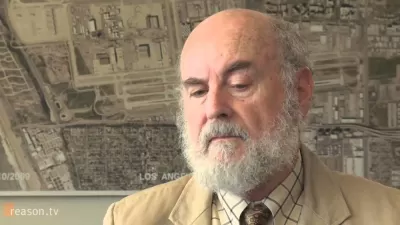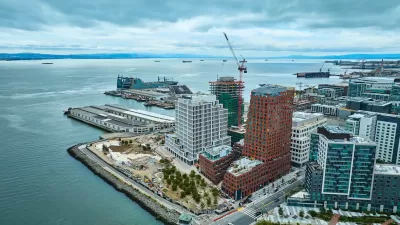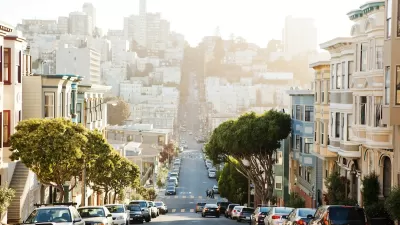San Francisco's voters are continuing their trend of deciding complex and difficult planning issues at the ballot box. Last time it was height restrictions—this time it's parking.
Kim-Mai Cutler's early coverage of San Francisco's so-called "Restoring Transportation Balance" initiative trades on the proposition's famous financial support—Sean Parker of Napster and Facebook fame. Parking policy wonks will find more distressing news in the details of Proposition L, which Cutler describes as "pro-parking and pro-car."
Among the policy changes at stake in the initiative (as quoted from the text of the initiative [pdf]), which will appear before San Francisco voters in November:
- "Commencing July 1, 2015, fees for parking garages, meters, parking tickets, and neighborhood parking permits should be frozen for five years, allowing the City to annually adjust thereafter only for Consumer Price Index (CPI) increases."
- "The introduction of parking meters or variable meter pricing into neighborhoods where they currently do not exist should be allowed only upon petition by the majority of the affected households and merchants."
- "A portion of any additional parking or motorists’ fees and new bond monies earmarked for the San Francisco Municipal Transportation Agency (SFMTA) should go to the construction and operation of neighborhood parking garages."
Cutler goes on to state in no uncertain terms that free parking is bad policy, and provides a few of the arguments that back up the claim. The comments on the article, however, show that Shoup isn't exactly a household name in San Francisco.
Aaron Bialick is providing updates on SF Streetsblog about the gathering political opposition to the initiative, most recently in a resounding rejection of the initiative by the SF Democratic County Central Committee. Bialick also reported that the "No on L" campaign is leading with the tagline "Do you really want more gridlock?"
FULL STORY: DCCC Joins Quickly Growing Opposition to Cars-First Prop L

Alabama: Trump Terminates Settlements for Black Communities Harmed By Raw Sewage
Trump deemed the landmark civil rights agreement “illegal DEI and environmental justice policy.”

Study: Maui’s Plan to Convert Vacation Rentals to Long-Term Housing Could Cause Nearly $1 Billion Economic Loss
The plan would reduce visitor accommodation by 25% resulting in 1,900 jobs lost.

Planetizen Federal Action Tracker
A weekly monitor of how Trump’s orders and actions are impacting planners and planning in America.

This Toronto Suburb Has More Bus Riders Than Columbus, Ohio
Brampton, Ontario used gradual improvements in service to prove that if you build it, they will ride.

Paris Bike Boom Leads to Steep Drop in Air Pollution
The French city’s air quality has improved dramatically in the past 20 years, coinciding with a growth in cycling.

Why Housing Costs More to Build in California Than in Texas
Hard costs like labor and materials combined with ‘soft’ costs such as permitting make building in the San Francisco Bay Area almost three times as costly as in Texas cities.
Urban Design for Planners 1: Software Tools
This six-course series explores essential urban design concepts using open source software and equips planners with the tools they need to participate fully in the urban design process.
Planning for Universal Design
Learn the tools for implementing Universal Design in planning regulations.
Smith Gee Studio
Alamo Area Metropolitan Planning Organization
City of Santa Clarita
Institute for Housing and Urban Development Studies (IHS)
City of Grandview
Harvard GSD Executive Education
Toledo-Lucas County Plan Commissions
Salt Lake City
NYU Wagner Graduate School of Public Service





























